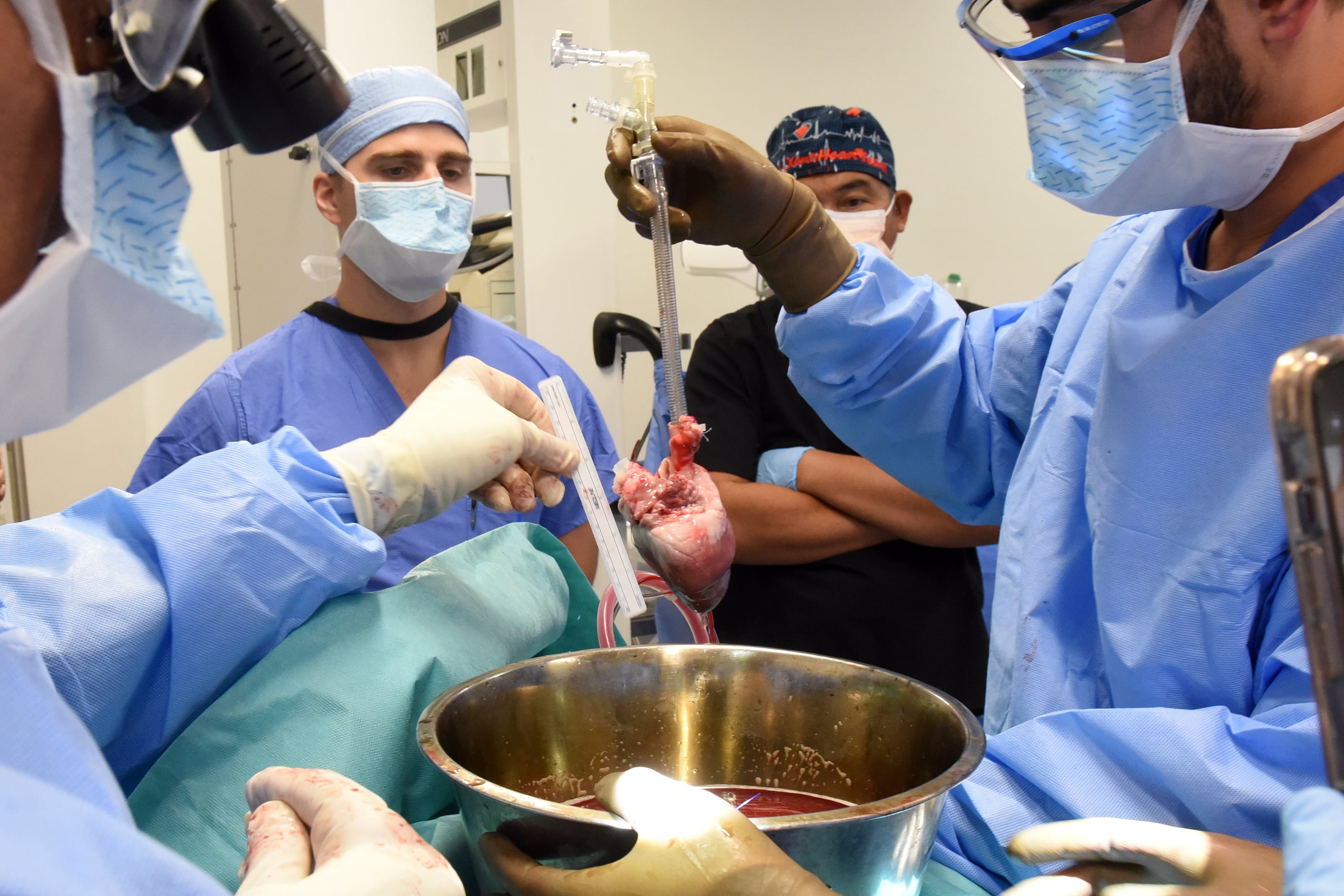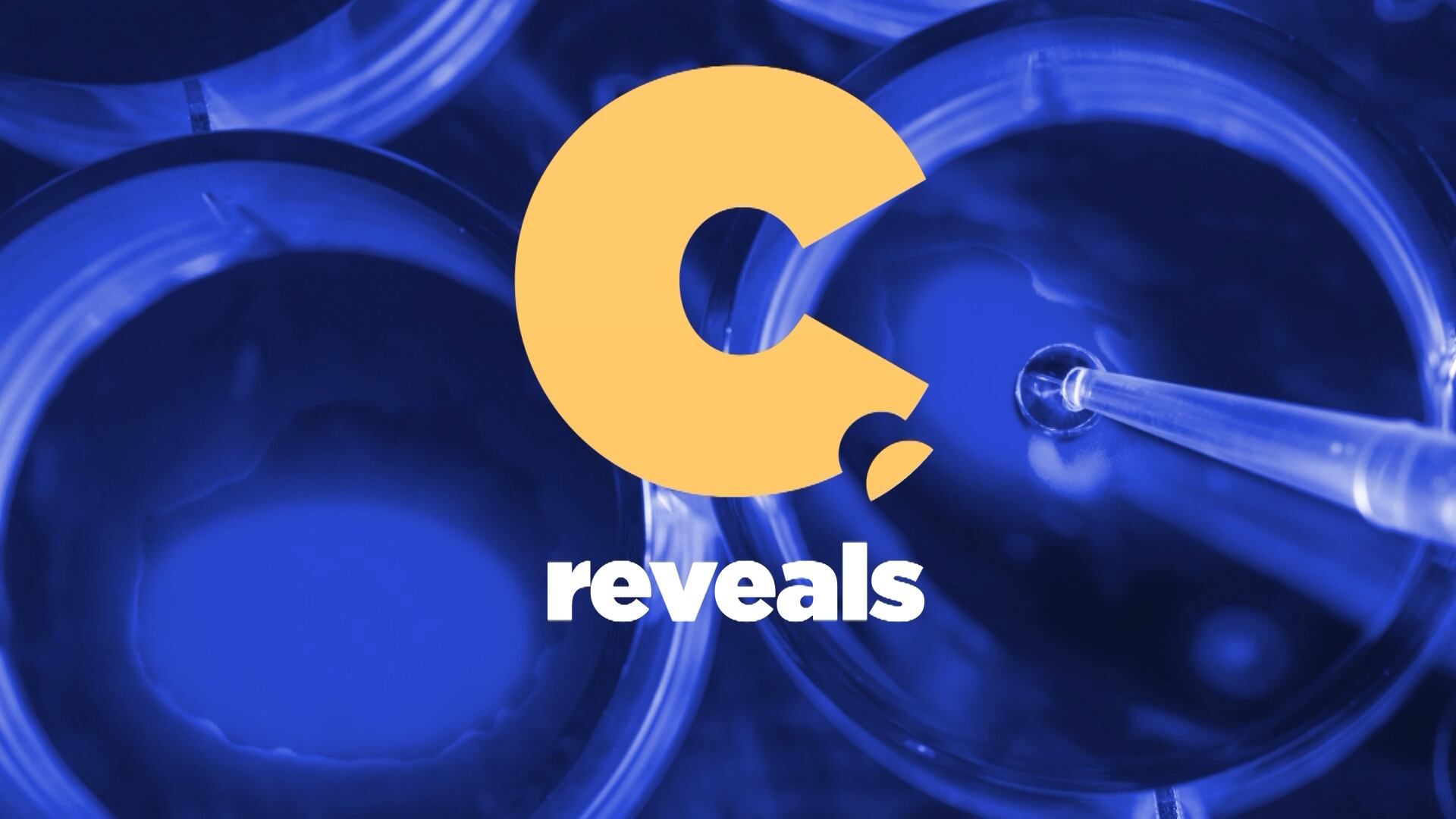By Lauran Neergaard
Surgeons have transplanted a pig’s heart into a dying man in a bid to prolong his life – only the second patient to ever undergo such an experimental feat. Two days later, the man was cracking jokes and able to sit in a chair, Maryland doctors said Friday.
The 58-year-old Navy veteran was facing near-certain death from heart failure but other health problems meant he wasn’t eligible for a traditional heart transplant, according to doctors at University of Maryland Medicine.
While the next few weeks will be critical, doctors were thrilled at Lawrence Faucette’s early response to the pig organ.
“You know, I just keep shaking my head – how am I talking to someone who has a pig heart?” Dr. Bartley Griffith, who performed the transplant, told The Associated Press. He said doctors are feeling “a great privilege but, you know, a lot of pressure.”
The same Maryland team last year performed the world’s first transplant of a genetically modified pig heart into another dying man, David Bennett, who survived just two months.
Faucette knew about the first case but decided the transplant was his best shot.
“Nobody knows from this point forward. At least now I have hope and I have a chance,” Faucette, from Frederick, Maryland, said in a video recorded by the hospital before the operation.
In a statement, his wife, Ann Faucette said: “We have no expectations other than hoping for more time together. That could be as simple as sitting on the front porch and having coffee together.”
There’s a huge shortage of human organs donated for transplant. Last year, there were just over 4,100 heart transplants in the U.S., a record number but the supply is so tight that only patients with the best chance of long-term survival get offered one.
Attempts at animal-to-human organ transplants have failed for decades, as people’s immune systems immediately destroyed the foreign tissue. Now scientists are trying again using pigs genetically modified to make their organs more humanlike.
Recently, scientists at other hospitals have tested pig kidneys and hearts in donated human bodies, hoping to learn enough to begin formal studies of what are called xenotransplants.
The University of Maryland attempt required special permission from the Food and Drug Administration to treat Faucette outside of a rigorous trial, because he was out of other options.
It took over 300 pages of documents filed with FDA, but the Maryland researchers made their case that they’d learned enough from their first attempt last year – even though that patient died for reasons that aren’t fully understood – that it made sense to try again.
And Faucette, who retired as a lab technician at the National Institutes of Health, had to agree that he understood the procedure’s risks.
What’s different this time: Only after last year’s transplant did scientists discover signs of a pig virus lurking inside the heart – and they now have better tests to look for hidden viruses. They also learned to avoid certain medications.
Possibly more important, while Faucette has end-stage heart failure and was out of other options, he wasn’t as near death as the prior patient.
By Friday, his new heart was functioning well without any supportive machinery, the hospital said.
“It’s just an amazing feeling to see this pig heart work in a human,” said Dr. Muhammad Mohiuddin, the Maryland team’s xenotransplantation expert. But, he cautioned, “we don’t want to predict anything. We will take every day as a victory and move forward.”
The pig heart, provided by Blacksburg, Virginia-based Revivicor, has 10 genetic modifications – knocking out some pig genes and adding some human ones to make it more acceptable to the human immune system.













